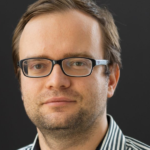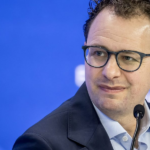“It’s cohabitation. I think you start with a degree, there’s a foundation that comes with a degree, but you need the skills to be relevant in the workplace,” he said.
Sarrazin added that it’s “silly to think” that the education someone gets in their early twenties will set them up for life. Instead, lifelong learning must become the norm.
“We need to move to a world where there’s ongoing, continuous evolution of the skills portfolio that one has to be adapted to the jobs that they want in the market that they’re in,” he added.
And while Sarrazin’s comments may come as no surprise given he leads a nearly $1 billion company focused on skills training, he insists he wouldn’t turn his back on higher education if he were a student today.
After all, he has three degrees to his name—including two from Stanford—and no regrets. University, he said, taught him something that will never go out of style: “how to think.”
“Skills development for AI readiness requires not just upskilling on the technical level or determining how to use it fluidly, in everyday use cases,” the report said. “It requires the ability to ask the right questions, to know when to rely on AI (and when to press pause), and to foresee impacts beyond the immediate.”
It can take time to realize that return—on average, about 11 years in the workforce to recoup the cost of a bachelor’s degree—but the long-term payoff is significant, opening doors to career advancement and higher earnings.
Still, Sarrazin emphasizes that having the diploma alone isn’t enough to guarantee success. What matters most is the ability to apply foundational knowledge to future challenges.
“[University] is a launching pad,” he said. “…Then, after that, we need to say, what do we do to prepare people to work and be successful? And I think skills become really, really, really important.”









